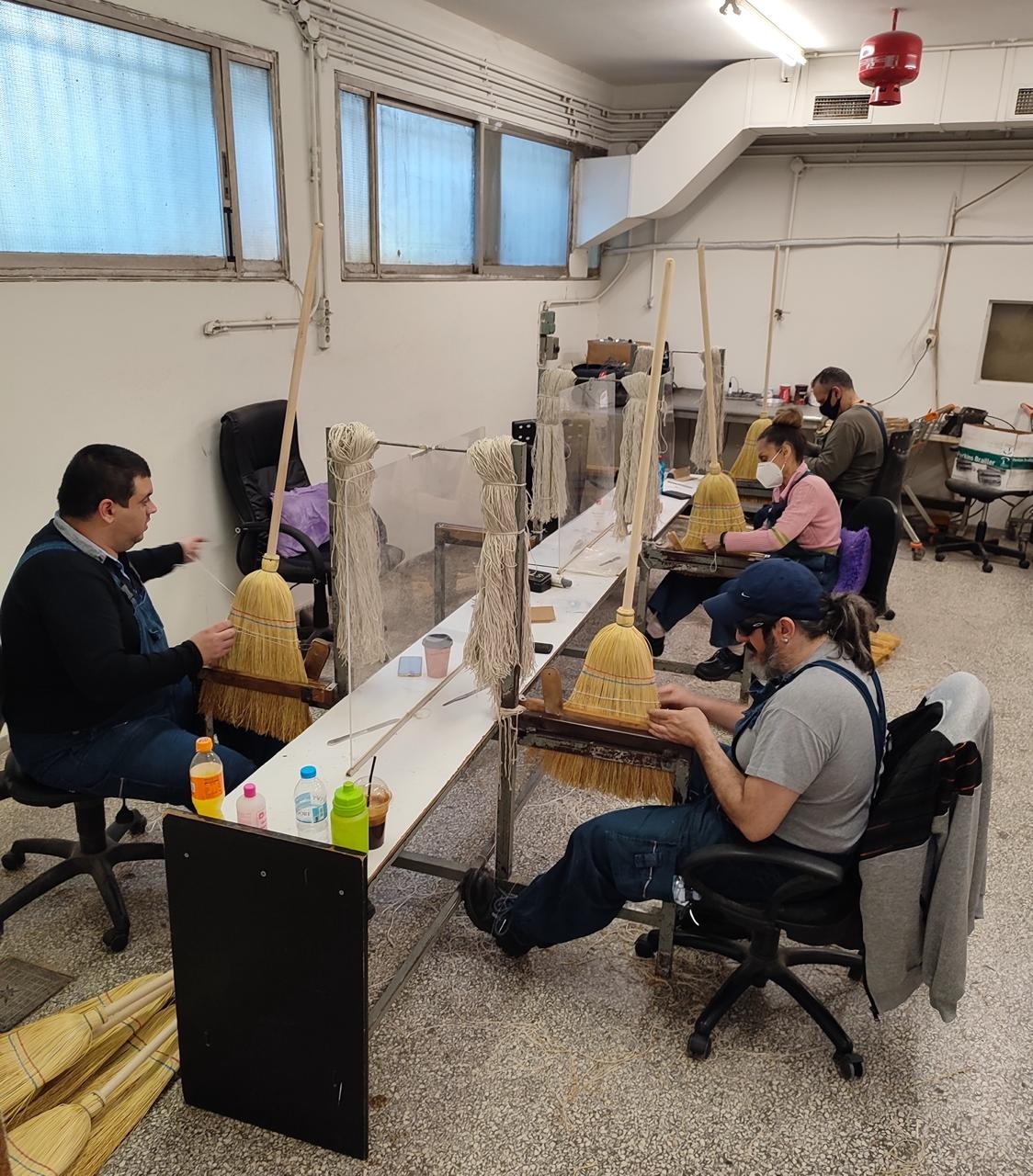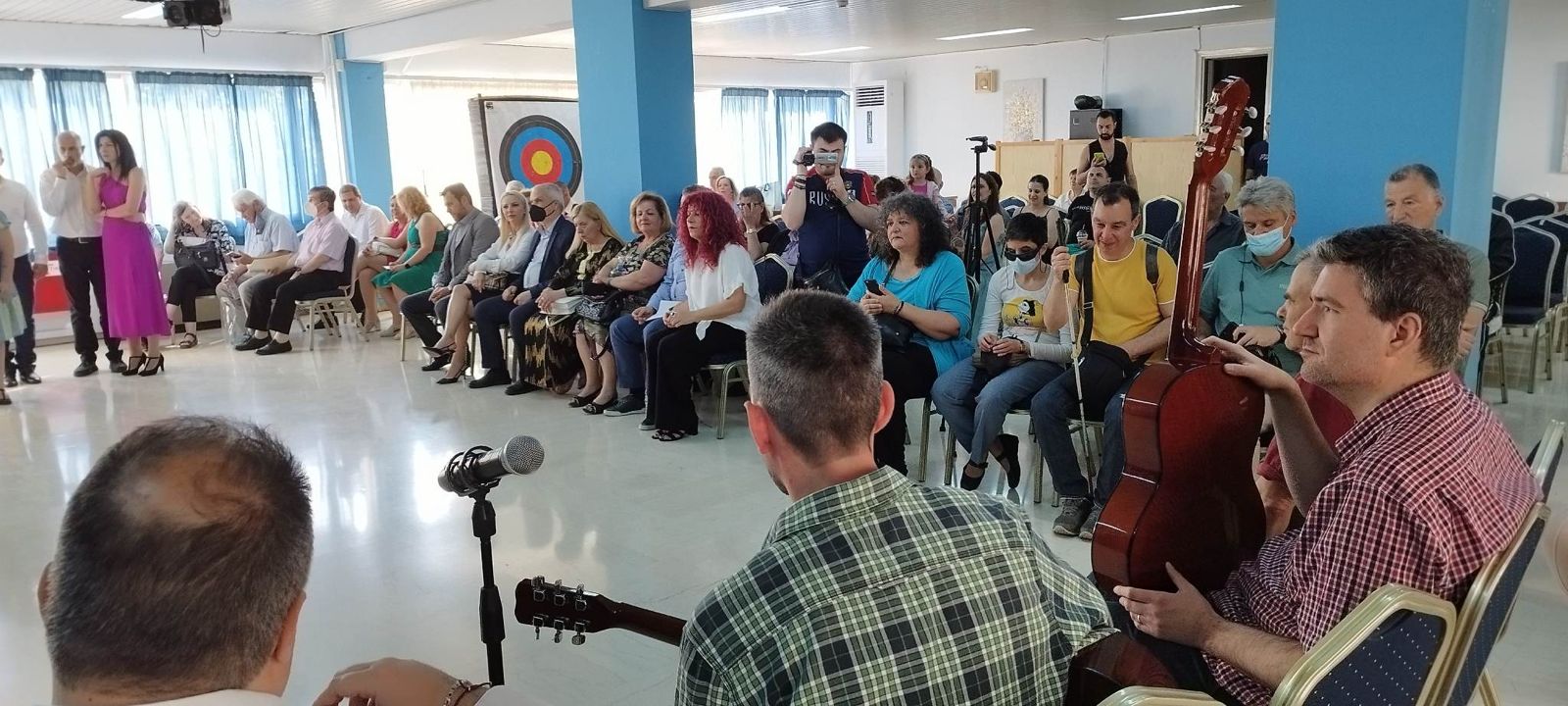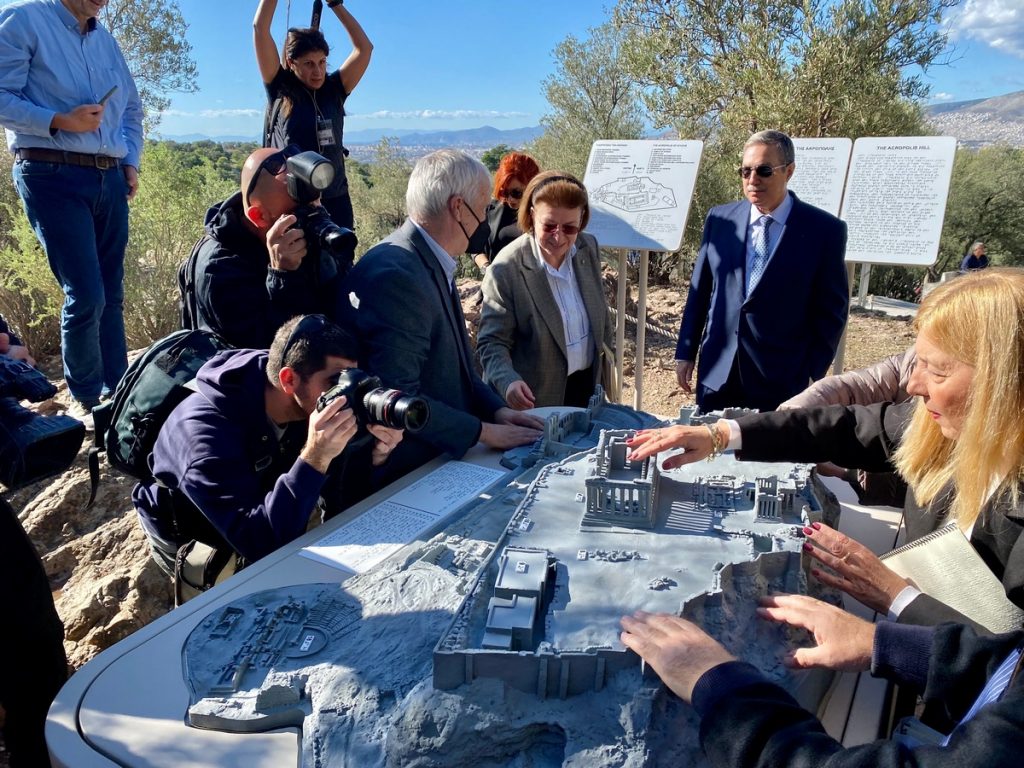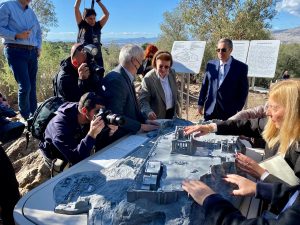For nearly a century, Faros in the heart of Kallithea, Athens has offered Greece’s blind and visually impaired the chance be part of a society that still has a long way to go to ensure all its members are equal.
“Faros” in Greek means “lighthouse” and that’s exactly what this non-profit social service does: it guides the country’s blind and visually impaired through tedious public procedures and red tape, offers specialized training and resources, and equips them with the knowledge and skills needed to live fulfilling and self-sufficient lives.
Faros for the Blind: Equal Access and Inclusion
Since 1946, when it first opened its doors thanks to the support of the American Friends of the Blind in Greece (AFBG), Faros focuses it services on three areas: education – employment opportunities – culture and recreation.
The goal is to keep the blind connected to life through culture, song and dance, work, and community,” Faros – Lighthouse for the Blind President Maria Tzevelekou tells To Vima English Edition.
“It is also a first step and stop for people who are not born blind but who lose their eyesight later in life feeling utterly lost, scared, and confused,” says Tzevelekou, who lost her eye-sight some 10 years ago.
“When there’s such a sudden shift in one’s life, it is critical that they are able to reach out for assistance on simple things we usually take for granted such as getting around, access to hospitals, banks, people,” she adds.
That’s where Faros comes into the picture.
Chance to Live Independently with Dignity
Speaking to To Vima English Edition, George Andros, a member of AFBG’s board of directors explains that Faros was set up by a small group of Greek-Americans who were concerned about the lack of services for the blind in Greece, particularly after the war.
“With personal savings, they paid for a few young people to learn agricultural methods in the US that could later be used to earn a living in Greece. Eventually, a building was bought in Kallithea, where they could work and participate in social activities. When items made by the blind were sold, profits were paid as wages. This opportunity to live independently with dignity continues to this day,” Andros says.
Since 1946, AFBG has raised some 3.6 million dollars in support of the blind in Greece, he adds.
Today, Faros has evolved into a reference point for the country’s blind and visually impaired offering free services to more than 100 people a day and 2,500 people a year.
“Our efforts, says Tzevelekou, who also sought help at Faros when she lost her eyesight, “are aimed at empowering those living with visual impairments, ensuring equal access to learning, and offering a sense of community and safety.”
Empowering Greece’s Blind and Visually Impaired
Currently, Faros runs dozens of free workshops in everything from dance, ceramics, and music to new technologies, smart phone use, and life skills.

One of Faros’ most important services is offering vocational training and jobs to blind or visually impaired persons in Greece.
In addition to its Braille lending library, it also runs a fitness center and health clinic, a Braille learning center, a recording studio for audio books, a Braille printing service which transcribes everything from books and instruction manuals to museum signs and medication leaflets into Braille, a broom factory, metal and textiles workshops, a theater, and a tactual museum.
Tzevelekou explains that one of Faros’ most important services is offering vocational training and creating jobs. Currently, she tells To Vima English Edition, there are dozens of blind or visually impaired persons working at Faros manufacturing a wide range of products, including brooms, baskets, linen, metal items as well as crafts sold to public and private customers, including the Greek armed forces, hotels, local governments, and hospitals.
Faros also runs an online shop in addition to transcription services for government and private clients. All revenues are channeled into wages, new programs and initiatives.
Greece: Inclusivity in Theory not in Practice
Beyond its welfare and social services, Faros has over the last 78 years spurred social change through dozens of outreach programs and awareness-raising campaigns.
One such noteworthy action is the so-called “suitcase museum” that travels to schools across Greece with items such as a white cane, books in Braille, and a Q&A game to teach children how to assist a blind or visually impaired individual.
In addition to the enduring support of AFBG, donations and sales of its products, Faros is also operating thanks to the support of some 60 active volunteers as well as dozens who offer their services all year round when the need arises.
But seven decades later is Greece inclusive of people with disabilities?
“No, we’re not,” says Tzevelekou. “In theory yes, but when it comes down to practice,” she says, “were not because processes need time, effort, and persistence and this comes at a cost.” Still today in Greece, you’ll find drivers parking on wheelchair ramps, on tactile paving, and in handicapped parking spots, among others.
Please Touch! Athens Tactual Museum for the Blind
One of Faros’ most impressive projects is its award-winning Athens Tactual Museum for the Blind, one of five such museums in the world.
Under the motto “Please Touch”, the museum welcomes blind or visually impaired visitors to ‘access the world’ through art and culture. The items ‘on show’ are tactile replicas of famous art works, ancient sculptures, and landmarks with audio or information in Braille offering a multi-dimensional understanding of the world. “Someone who is blind does not know what a church is like. Here, through touch, they can get a feel of the building,” explains Tzevelekou.
Faros: The Blind ‘Feel Safe, Not Alone, At Home’
When asked about Faros’ greatest contribution, Tzevelekou, says it’s the support, sense of family, and solace that “people who suddenly find themselves in this predicament” receive.
“They feel safe here, not alone, at home,” she says but stresses that she hoped the state could play a more active and supportive role. “All efforts and actions are private initiatives. The state should have been the frontrunner,” she says.

During one of the many events held at the Faros – Lighthouse for the Blind in Athens, Greece.
“Without question, the greatest observation is that the work done and support given to the blind at Faros is making a difference,” says Andros who participated in music and dance events last year on his visit from the US.
Looking ahead, Tzevelekou hopes to be able to host more activities that will “motivate people to get up and come” and to be able to arrange a trip abroad for the blind and visually impaired.
If you want to support Faros Lighthouse for the Blind, you can apply as a volunteer or make a donation.






